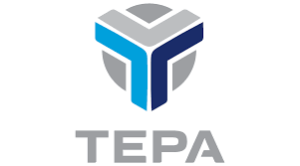
 With just two weeks to this year’s Automechanika Johannesburg, taking place between 5 – 7 September, the Tyre, Equipment, Parts Association (TEPA) has lined up a strong panel of experts for a one day Blow the Whistle conference on 7 September focusing on the very important issue of industry compliance and the need to set up an Industry Compliance Forum.
With just two weeks to this year’s Automechanika Johannesburg, taking place between 5 – 7 September, the Tyre, Equipment, Parts Association (TEPA) has lined up a strong panel of experts for a one day Blow the Whistle conference on 7 September focusing on the very important issue of industry compliance and the need to set up an Industry Compliance Forum.
Vishal Premlall, national director of TEPA, says this will be a very important conference to attend for any industry members interested in the formation of an Industry Compliance forum. The conference, which is free to Automechanika visitors, will unpack the benefit to industry and discuss the necessary partnerships between industry and statutory bodies which are necessary in order to take ownership and help curb this illicit trade.
Premlall says TEPA members have observed a distinct increase in the number of illicit parts making their way into the country.
“This pattern is not uncommon and is also observed as a growing concern by industry stakeholders and relevant statutory bodies,” he says. Shawn Reddy from Motus Aftermarket Parts, one of the panelists at the Forum says, South Africa and the rest of Africa are facing a significant challenge of excessive counterfeit automotive parts. “As the continent moves to avail more consumer independence, there is reduced guidance, inspection, and control of products being dispatched to the market. The influx of counterfeit automotive parts has triggered various challenges to the South African economy in addition to compromised safety for both vehicle owners and passengers,” says Reddy.
Premlall adds that with consumers currently under significant pressure, this demand will continue to grow indirectly promoting the uptake of more illegal trading activity. “The risk we face now is that these parts may not conform to regulatory standards, may place further pressure on an already constrained compliant market and in the case of safety critical components impact the road worthiness of vehicles travelling on South African roads,” he says.
The panelists invited represent all key sectors of the industry and will look at the impact these illicit parts have on a compliant industry, on consumer safety and road safety and discuss why collaboration between industry and statutory bodies to create an industry compliance forum has become a priority.
TEPA, who launched their own whistleblower earlier this year, want to expand the initiative so the forum can deal with reported cases of malpractices and illegal trading. “The culture of fraud and corruption in the South African marketplace negates levels of public trust, slows down overall economic growth and opposes the country’s democratic values leading to political instability,” says Premlall.
The formation of a compliance forum will help investigate cases of illicit trading reported through the whistle-blower hotline and enable the statutory bodies with evidence to apply sanctions including relevant penalties / suspensions and bring back some level of reform to unethical practices.
In a keynote address at the 2022 Mining Indaba in South Africa, President Cyril Ramaphosa urged business to partner with the government and address the nation’s malpractices. An illustration of where this cooperation is producing positive results in South Africa is in the petroleum industry, where partnerships formed between industry stakeholders and statutory bodies called the Petroleum Compliance Forum, under the Department of Minerals, Resources and Energy (DMRE) are given the responsibility of investigating and dealing with instances of illegal trading in petroleum products and to release findings on a regular basis to broader industry and the media to raise awareness of the forum, its goals and consequences for perpetrators.
TEPA believe the same can be done in the parts and equipment space. “For TEPA and the rest of the industry, illegal trading and malpractices have dire implications to business sustainability. For South Africa illegal trading impacts the fiscus. For consumers at large, illegal products (especially safety critical components) entering the market and finding themselves onto the vehicles of cash strapped consumers and ultimately onto South African roads, pose significant road safety concerns,” he concludes.
 ..:: AUTO REPORT AFRICA ::..
..:: AUTO REPORT AFRICA ::..




